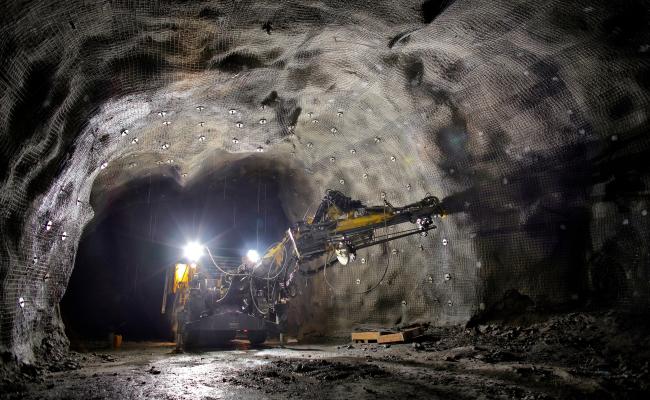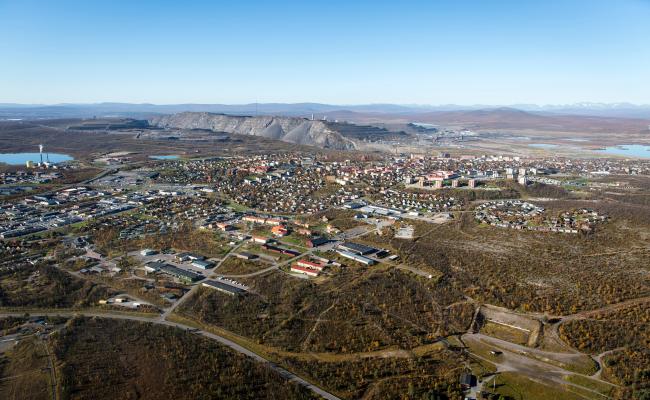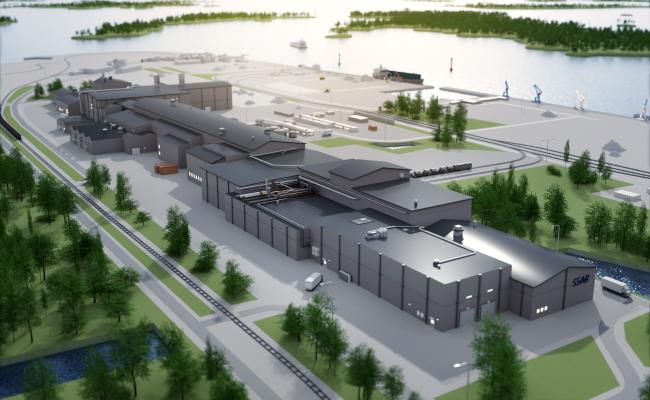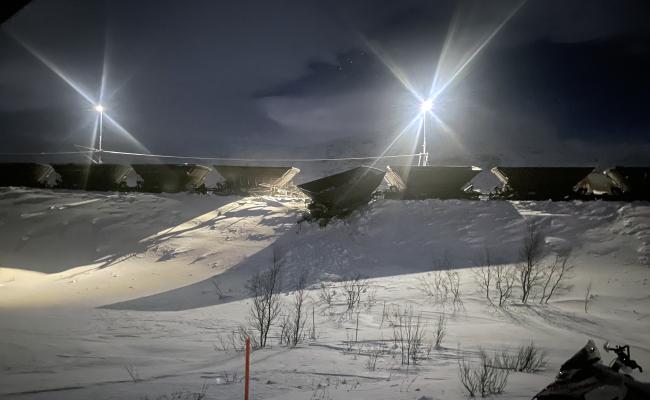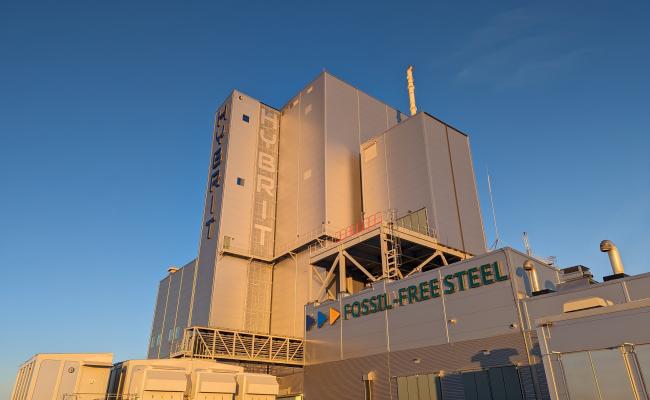Mining Company LKAB in Northern Sweden Gets Approval for Green Shift Work
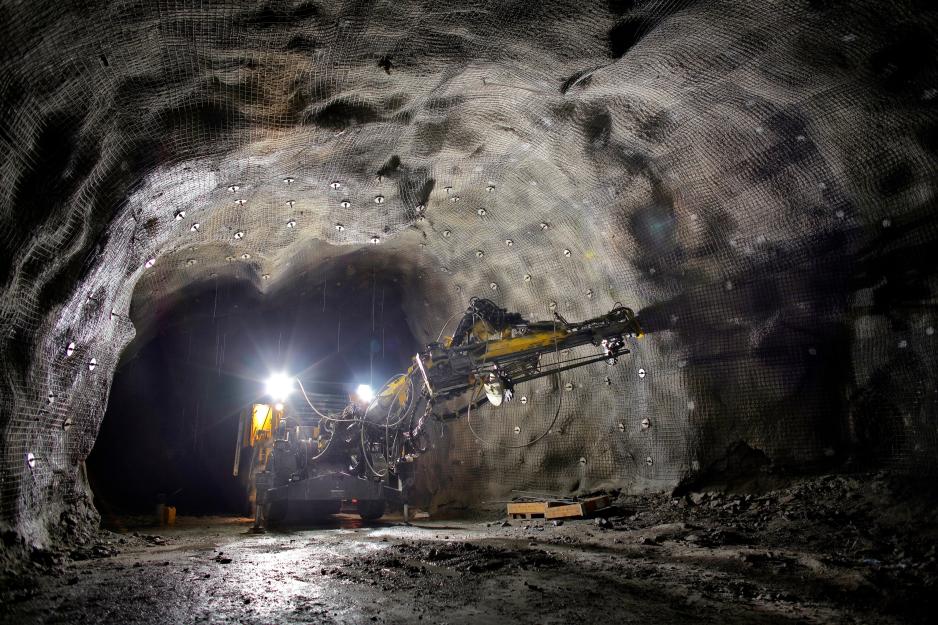
The Swedish National Audit Office has published its investigation into the Swedish mining company LKAB's planned transition to producing fossil-free sponge iron. The initiative is intended to contribute to a greener iron and steel industry. (Photo: Fredric Alm)
The Swedish National Audit Office approves the mining company LKAB's work on the green transformation of its operations. Whether the initiative is profitable is still uncertain.
For one year, the Swedish National Audit Office has investigated the state-owned company LKAB's green transition of its business.
The National Audit Office's review was recently published and shows that the planning has mainly been conducted in a business-like manner so far. However, it is far from certain that this investment, if carried out, will be profitable, write the authors of the report.
A major societal and industrial shift is taking place in Northern Sweden. This green industrialisation has received both support and criticism. For some companies, the investments have halted; for others, they have persisted.
The National Audit Office has looked explicitly at LKAB's work toward green transitioning. Since LKAB is wholly owned by the Swedish state, the state will carry the financial consequences of the transition, the review states (see fact box).
Background for the review
The Swedish mining giant LKAB has extracted iron ore in Northern Sweden for over a hundred years and is currently Europe's largest iron ore producer.
The company's investment in green transitioning took full speed in 2020. The company launched plans for investment of several hundred billion SEK, including transitioning parts of its operations to carbon dioxide-free production of sponge iron.
This way, the company would produce a more valuable iron ore product (sponge iron), which eventually will take over for the production of the iron ore pellets that the company produces today. The production method is nearly carbon dioxide-free, and the shift would contribute to the shift to a fossil-free iron and steel industry.
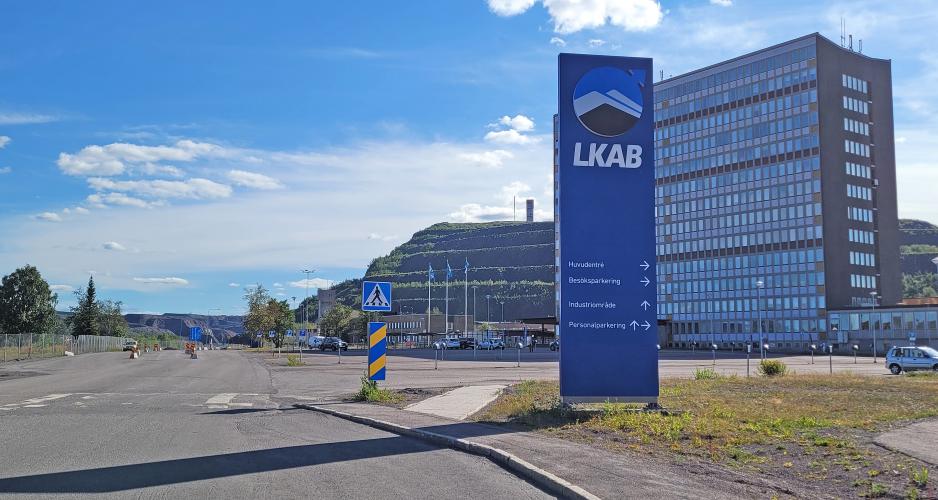
Production of sponge iron is a significant part of LKAB's future restructuring. Another important focus for the company in the future is the extraction of critical minerals and rare earth metals. (Photo: Arne O. Holm / High North News).
The National Audit Office's focus during the investigation was the industrial-scale demonstration facility that LKAB plans to build in the Northern Swedish town of Malmberget in Gällivare municipality.
As HNN reported in November 2024, LKAB postponed the transition to producing fossil-free sponge iron until after 2040 in Kiruna municipality, where the company also extracts iron ore and plans future extraction of critical minerals.
The facility in Malmberget is intended to be the first step in LKAB's transition to fossil-free sponge iron. However, the Audit Office specifies that no investment decision has been made.
According to the application LKAB sent to the Swedish Energy Agency for support from the Industrial Leap scheme, the cost is approximately SEK 31 billion, including a smaller part which is not an investment cost, writes the Audit Office.
Also read (the article continues below)
Uncertain profitability
In other words, the authorities' review approves of LKAB's work to transition its operations so far and emphasizes that LKAB has prioritized securing profitability and functioning technology before the investment decision is made. It is also seen as positive that decisions about the transition are made in stages.
When the prerequisites have been lacking, there are examples of LKAB changing its plans or postponing them, writes the authors of the report.
At the same time, the Audit Office highlights that the long-term risks are significant and that there is uncertainty surrounding the profitability of the investment.
"The calculations made by the company so far are based on several prerequisites which, when they were carried out, were in line with external analyses. But several prerequisites have worsened, which impacts the profitability negatively," says Magnus Landergren, the project leader of the review, in a press release.
It further states, among other things, that the price of energy will play a significant part.
"Although LKAB can enter into fixed agreements with electricity producers during the first years of production, securing the electricity price for the entire investment life is impossible. If the transition is carried out, it will require so much electricity that it could lead to higher electricity prices, weakening LKAB's profitability," the report authors write.
The National Audit Office's report also states that the electricity consumption of the demonstration facility is estimated to be 5 TWh per year. The electricity consumption of the demo plant thus corresponds to an increase in Sweden's total electricity consumption of almost four percent.
Excerpt from the Swedish National Audit Office's report
- Since the [Swedish] state owns LKAB, it will also be the state that bears the financial consequences of the transition.
- If the transition is successful, LKAB's returns could increase, and carbon dioxide emissions could be significantly reduced.
- If the investment fails, the consequences could be reduced dividends and write-downs.
- In 2023, LKAB had the highest profit among state-owned companies: SEK 16.2 billion.
- LKAB's profitability is therefore crucial for financing the Swedish state's obligations.
Another uncertainty concerns the popularity of the new product, as there is currently no established market on which to base it. Only when sales agreements are signed can LKAB get a clearer picture of future revenues.
"It is reasonable for LKAB to investigate the possibility of switching to fossil-free production. But it is important that the company continues developing the decision-making basis that the board must consider before making any investment decision," says Auditor General Christina Gellerbrant Hagberg.
One of several elements
"We welcome the investigation and are pleased that the Auditor General confirms the business-oriented approach that has characterized LKAB's strategic work and planning. LKAB uses a working method that is normal for the mining industry, where investment decisions are made gradually and only when the conditions are ripe," comments the Senior Vice President Public Affairs and External Relations, Niklas Johansson, at LKAB in a press release.
"The planned transition to fossil-free sponge iron is an important, but not the only, element in the work to secure the company's future competitiveness," he adds.
Johansson further points out that the uncertainties referred to in the report, such as electricity prices and market developments, are well-known and something that LKAB has repeatedly pointed out, not least concerning the development of fossil-free electricity production and access to electricity at competitive prices.



